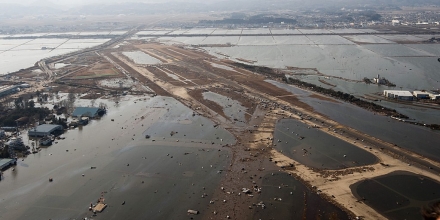Evaluating climate change mitigation policy of Japan: A multi-model approach

Event details
Public Seminar
Date & time
Venue
Speaker
Contacts
In June 2019, Japan announced its plan to reduce greenhouse gas emissions by 80 per cent by 2050 and achieve decarbonisation later. In light of its unique characteristics (smaller renewable resources, the large presence of heavy industry, issues with nuclear and CCS, etc.), Japan faces many challenges in its long term climate change mitigation. In this study (Stanford Energy Modeling Forum 35 Japan Model Intercomparison), the researchers analyse the climate policy proposal of Japan by taking into about inter-model uncertainty and conducting sensitivity analyses. It is found that to contain the cost of mitigation, Japan needs to rely on the trade of clean energy and/or carbon. Implications for Japanese-Australian collaboration will be discussed.
Masahiro Sugiyama is an Associate Professor at the Institute for Future Initiatives (IFI), the University of Tokyo. He holds a Ph.D. in climate science and a master’s degree in technology and policy, both from MIT. Prior to joining U-Tokyo, he was a researcher at the Socio-Economic Research Center, the Central Research Institute of the Electric Power Industry. He joined U-Tokyo in April 2014. An expert on global warming, he has worked on various topics related to climate change, ranging from energy efficiency in global scenarios to citizens’ views on climate geoengineering. His works have been published in various academic journals, including Nature.
Updated: 27 July 2024/Responsible Officer: Crawford Engagement/Page Contact: CAP Web Team










